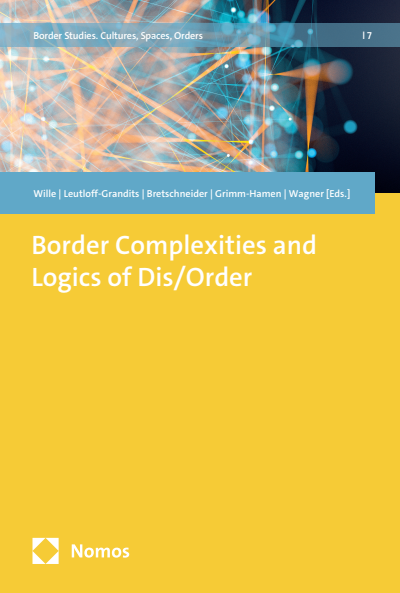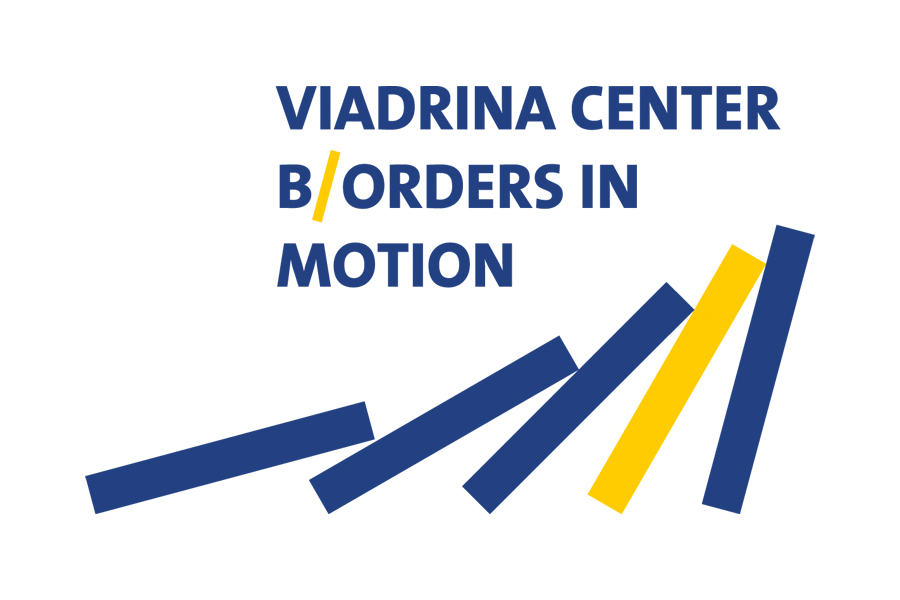Border Complexities. A German-French-Luxembourgish Workshop Series
details
Project lead:
- Prof. Dr Konstanze Jungbluth (Professor em. of Pragmatics and Contrastive Linguistics, European University Viadrina)
- PD Dr Carolin Leutloff-Grandits (Senior Researcher, Viadrina Center B/ORDERS IN MOTION)
- Prof. Dr Claudia Weber (Professor of European Contemporary History, European University Viadrina)
- Dr Christian Wille (UniGR - Centre for Border Studies, University of Luxembourg)
- Dr Katrin Becker (UniGR - Centre for Border Studies, University of Luxembourg)
- Prof. Dr Monika Eigmüller (Interdisciplinary Centre for European Studies, Europa-Universität Flensburg)
- Prof. Dr Iulia-Karin Patrut (Interdisciplinary Centre for European Studies, Europa-Universität Flensburg)
- Prof. Dr Hedwig Wagner (Interdisciplinary Centre for European Studies, Europa-Universität Flensburg)
- Dr. Maria Schwab (Interdisciplinary Centre for European Studies, Europa-Universität Flensburg)
- Prof. Dr Grégory Hamez (UniGR - Centre for Border Studies, Université de Lorraine, Metz)
- Prof. Dr Sylvie Grimm-Hamen (UniGR - Center for Border Studies, Université de Lorraine, Metz)
- Kheira Oudina (UniGR - Centre for Border Studies, Université de Lorraine, Metz; Maison des Sciences de l'Homme Lorraine)
- Dr Falk Bretschneider (Centre Georg Simmel, École des Hautes Études en Sciences Sociales, Paris)
- Prof. Dr Rainer Maria Kiesow (Centre Georg Simmel, École des Hautes Études en Sciences Sociales, Paris)
- Nicole Holzapfel-Mantin, M.A. (UniGR - Centre for Border Studies, University of Luxembourg)
Funding:
Deutsch-französische Hochschule | Université franco-allemande
Project duration:
December 2019 to December 2021
Project description
Publication:

Wille, Christian/ Leutloff-Grandits, Carolin/ Bretschneider, Falk/ Grimm-Hamen, Sylvie/ Wagner, Hedwig (eds.)
(2024): Border Complexities and Logics of Dis/Order (Series: Fellner, Astrid/ Jungbluth, Konstanze/ Krämer,
Hannes/ Wille, Christian (eds.): Border Studies. Cultures, Spaces, Orders, vol. 7). Baden-Baden: Nomos.
doi.org/10.5771/9783748922292
A second volume is in preparation.
In recent decades, border studies have become one of the emerging fields in social and cultural studies. In this context, they are now also undergoing a process of institutionalization in Europe and are increasingly encompassing more disciplines. Against this background, border studies today cover a wide range of research topics. It has become generally accepted that the function and effect of borders can be read less from the edges of national territories but that borders can only be understood by examining the processes of their establishment, displacement, infiltration, etc. This view has become established in border studies at least since 2000 with the bordering approach. (Paasi 1999; van Houtum 2002; Sahlins 1991; Motsch 2001; Rutz 2018).
However, the implementation of this approach shows that the analytical perspective remains underdeveloped. Criticism of the bordering approach has focused on its lack of conceptualization and complexity, and has recently led to a broadening of the analytical perspective. It attempts to analytically fan out bordering processes and to consider their various interrelated dimensions. This approach is based on the insight that borders are not constituted through the unambiguous positing of dichotomous orders, the achievement of separation by a limited number of actors, or at the territorial edge of national societies. Rather, recent border studies conceptualize borders as the outcomes and crystallization points of multi-layered formations that emerge from the (situational) interaction of diverse actors, activities, bodies, objects, and knowledge, and that they can be transformed. (Amilhat Szary/Giraut 2015; Brambilla 2015; Hess 2018; Weier et al. 2018; Gerst et al. 2018).
The concept of border complexities is defined by a set of dynamic constellations that can either be causal for borders or emerge from them. It is situated at the core of the interdisciplinary project, wherein it is conceptualized through a multiplicity of analytical approaches and discussed in light of empirical examples. To this end, an interdisciplinary workshop series has been conducted with the objective of enabling a structured examination of a recent development in border studies.
The series consisted of five thematically linked workshops involving junior and senior researchers from Germany, France and Luxembourg. Each workshop focused on a specific aspect of the analysis of border complexities and further developed a trend in border research that had received little attention to date. The workshops took place between 2019 and 2021 at the partner universities, four of which are located in border regions. The French-German, French-Luxembourgian, German-Polish and German-Danish border locations were used to illustrate and deepen the topics of the workshops.
„Border Complexities“ workshops:
05-06/12/2019 – Borders as Border Complexities
(University of Luxembourg, Esch-sur-Alzette)
18-19/03/2021 – Logics of the Dis/order of Border Complexities
(European University Viadrina, Frankfurt (Oder))
07-09/06/2021 – Temporalities and Transformations of Border Complexities
(École des Hautes Études en Sciences Sociales, Paris / Villa Vigoni)
02‐03/12/2021 – Materialities and Corporealities of Border Complexities
(Europa‐Universität Flensburg, Flensburg)
02-03/06/2022 – Spaces and Networks of Border Complexities
(Université de Lorraine, Metz)
